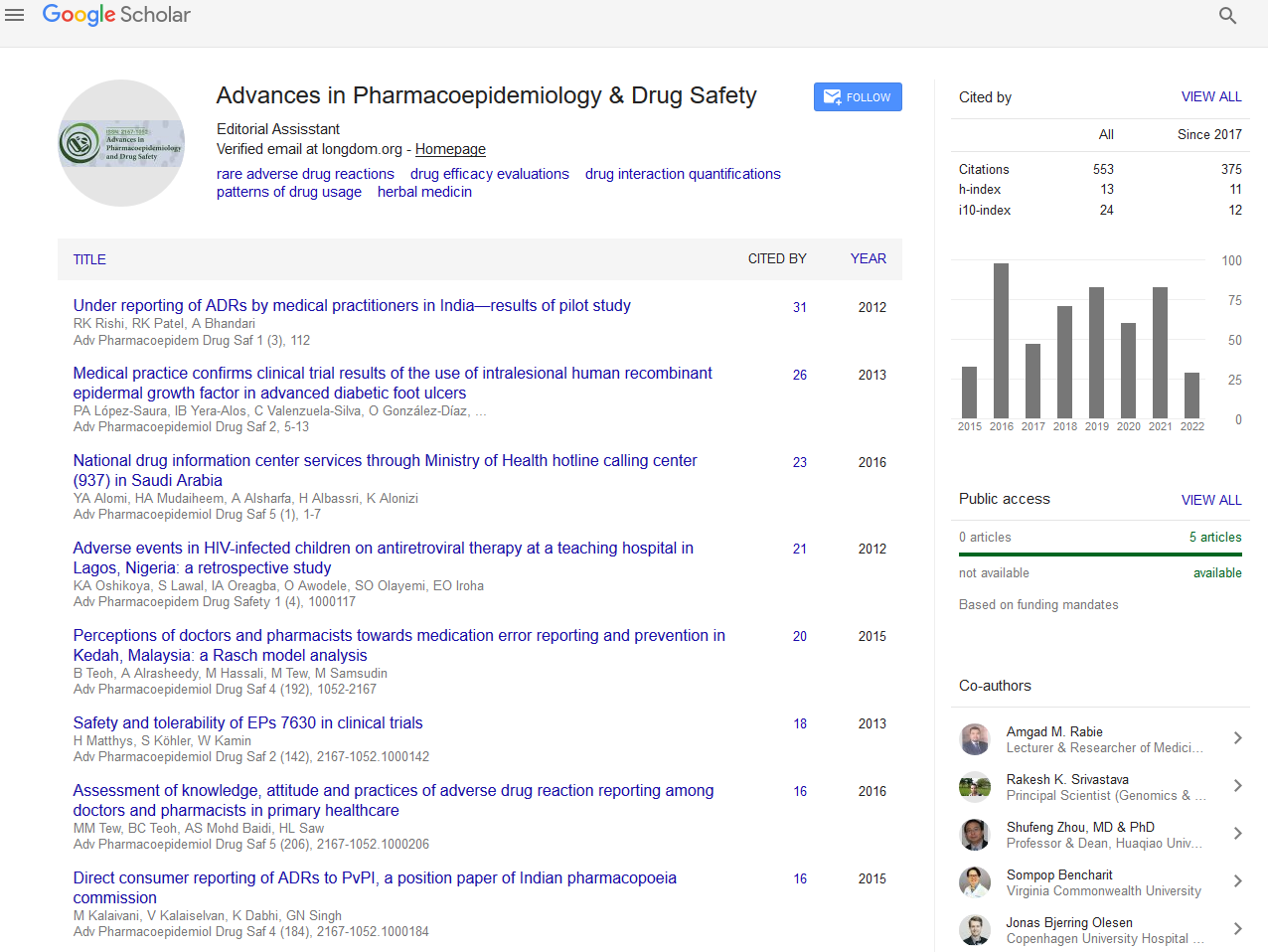Indexed In
- Open J Gate
- Genamics JournalSeek
- Academic Keys
- JournalTOCs
- RefSeek
- Hamdard University
- EBSCO A-Z
- SWB online catalog
- Publons
- Geneva Foundation for Medical Education and Research
- Euro Pub
- Google Scholar
Useful Links
Share This Page
Journal Flyer

Open Access Journals
- Agri and Aquaculture
- Biochemistry
- Bioinformatics & Systems Biology
- Business & Management
- Chemistry
- Clinical Sciences
- Engineering
- Food & Nutrition
- General Science
- Genetics & Molecular Biology
- Immunology & Microbiology
- Medical Sciences
- Neuroscience & Psychology
- Nursing & Health Care
- Pharmaceutical Sciences
Abstract
Duration of Antidepressant Use and Risk of New Onset Drug Treated Diabetes Derived from Australian Administrative Data
Introduction: Treatment with antidepressants may be associated with a risk of diabetes. Direct drug effects might play a role, but weight gain and impaired glucose regulation are other factors that may contribute to diabetes risk.
Objective: We have utilised an Australian administrative pharmaceutical database to examine the association of new onset drug-treated diabetes with specific antidepressant treatments and durations.
Methods: A longitudinal cohort study with quasi-experimental design using administrative pharmaceutical data was performed. Uninterrupted treatments of 0.5-4 years with specific antidepressant agents prescribed to individuals were defined and the relative risks of new-onset drug treated diabetes calculated for age, sex, and treatment duration.
Results: Seven antidepressant medications most frequently prescribed were assessed in 72,753 participants. The analysis included the antidepressant subclasses of non-selective monoamine reuptake inhibitors (n=1), selective serotonin inhibitors (n=3) and other anti-depressants (n=3). Increased relative risk of new onset of diabetes was associated with the first year of treatment, male gender and increasing age (Anova p<0.02). Mirtazapine and Desvenlafaxine exhibited higher relative risks for diabetes especially in elderly male cohorts. Following the first year of continuous antidepressant treatment, the risk of new onset diabetes fell towards normal and below normal levels.
Conclusion: The New onset antidepressant treatment is associated with an increased risk of new onset of drugtreated diabetes within the first year. Increasing diabetes risk with longer durations of antidepressant treatment was not established. The risk of diabetes in certain depressed patients should be contemplated before starting antidepressant drug treatments.
Published Date: 2021-09-10; Received Date: 2021-08-20


